The Bible features approximately 88 prophets, with 63 in the Old Testament and 25 in the New Testament. Major Prophets include Isaiah, Jeremiah, Ezekiel, and Daniel, while Minor Prophets comprise twelve books. They served as divine messengers, delivering prophecies crucial to Christian faith and understanding.
Overview of Biblical Prophets
The prophets of the Bible are central figures who acted as messengers of God, delivering divine revelations and guidance to His people. They are categorized into Major and Minor Prophets, with the Major Prophets being recognized for their lengthy and detailed prophecies, while the Minor Prophets, despite their shorter writings, carry equally significant messages. These prophets spanned various periods, from the time of the Israelite monarchy to the post-exilic era, addressing themes such as judgment, repentance, and hope. Their prophecies not only provided immediate guidance but also foresaw future events, including the coming of Jesus Christ. The prophets’ role was both to admonish and to comfort, ensuring the people remained faithful to God’s covenant. Their contributions are essential to understanding the theological and historical narrative of the Bible, making them indispensable to Christian doctrine and faith.

Significance of Prophets in the Bible
The prophets in the Bible hold immense significance as messengers of God, entrusted with conveying divine revelations to humanity. Their role was to guide the Israelites in maintaining covenant faithfulness and to prepare them for the coming Messiah. The prophets’ messages often balanced judgment with hope, emphasizing God’s justice and mercy. Their writings are foundational to both the Old and New Testaments, influencing Christian doctrine and practice. By addressing moral and spiritual issues, the prophets provided timeless teachings that remain relevant today. Their prophecies about the Messiah, fulfilled in Jesus Christ, underscore their importance in the broader narrative of redemption. The prophets’ call to repentance and righteousness continues to inspire believers, making their contributions indispensable to understanding God’s plan of salvation and His relationship with humanity.
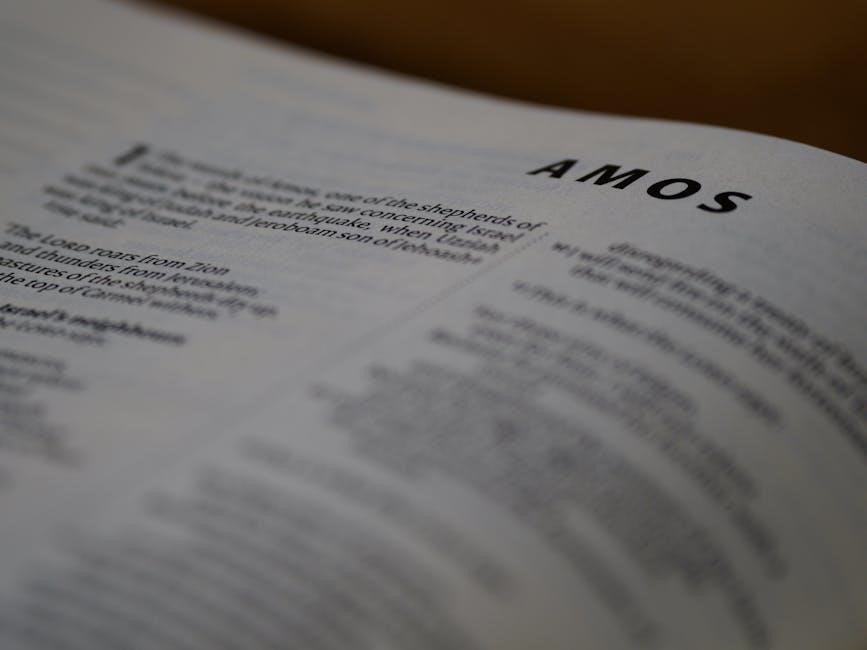
Major Prophets of the Bible
The Major Prophets, including Isaiah, Jeremiah, Ezekiel, and Daniel, are renowned for their extensive writings and profound prophecies. Their teachings are central to understanding divine plans and redemption.
Isaiah: His Prophecies and Impact
Isaiah, one of the most prominent prophets in the Bible, prophesied during the 8th century BCE, addressing both judgment and redemption. His prophecies emphasized God’s holiness, justice, and mercy, often calling Israel to repentance. Isaiah is renowned for his vivid descriptions of the Messiah, including the famous passage in Isaiah 53, which foretells the sufferings of Christ. His writings also include visions of a restored Israel and a new heavens and earth. Isaiah’s prophecies are deeply poetic and symbolic, reflecting his literary skill. His message of hope and redemption continues to inspire believers today, making him a cornerstone of both Jewish and Christian theology. Isaiah’s influence extends beyond his time, shaping the understanding of God’s plan for humanity.
Jeremiah: The Prophet of Lamentations
Jeremiah, active during the 7th and 6th centuries BCE, is known as the Prophet of Lamentations due to his sorrowful prophecies about Israel’s impending downfall. He prophesied during a tumultuous period, witnessing the fall of Jerusalem and the destruction of the Temple. Jeremiah’s messages were often filled with emotional appeals, urging the people to repent and return to God. His prophecies were not limited to judgment but also included promises of restoration, such as the New Covenant. Jeremiah’s writings are deeply personal, revealing his inner struggles and divine calling. His book, along with the Book of Lamentations, captures the sorrow of a nation and the prophet’s own anguish. Jeremiah’s role as a prophet was to call Israel back to faithfulness, emphasizing God’s justice and mercy. His legacy endures as a voice of both warning and hope in biblical history.
Ezekiel: Visions and Divine Call
Ezekiel, a major prophet of the Old Testament, received his divine call during the Babylonian exile, around 593–570 BCE. His prophetic ministry began with a dramatic vision of a whirlwind, four living creatures, and a heavenly throne, symbolizing God’s presence and sovereignty. Ezekiel’s call emphasized his role as a watchman, tasked with warning Israel of impending judgment for their sins. His prophecies often focused on the destruction of Jerusalem and the Temple, as well as the eventual restoration of Israel. Ezekiel’s visions, such as the valley of dry bones, conveyed hope for national renewal. His unique prophetic acts, like lying on his side for 390 days, underscored his obedience to God’s commands. Ezekiel’s message balanced judgment with redemption, offering a glimpse of a future where God’s people would be restored and spiritually transformed, reflecting the prophet’s deep concern for Israel’s spiritual condition and ultimate salvation.
Daniel: Prophecies and Apocalyptic Visions
Daniel, a prominent prophet and statesman, ministered during the Babylonian exile (604–535 BCE). His prophecies, revealed through visions and dreams, focused on future events, including the rise and fall of empires and the coming Messiah. Daniel’s apocalyptic visions, such as the four beasts and the Ancient of Days, provided insight into end-time events. His prophecy of the 70 weeks outlined a timeline for Israel’s redemption. Daniel’s role as a prophet bridged the Old and New Testaments, influencing later Christian teachings about the Son of Man. His unique position as both a prophet and a statesman allowed him to serve God while advising King Nebuchadnezzar. Daniel’s ministry emphasized faith and perseverance, offering hope to Israel during captivity. His prophecies remain central to understanding biblical eschatology and divine sovereignty over human history.


Minor Prophets of the Bible
The Minor Prophets, comprising twelve books, are Hosea, Joel, Amos, Obadiah, Jonah, Micah, Nahum, Habakkuk, Zephaniah, Haggai, Zechariah, and Malachi. Their prophecies addressed Israel’s moral decline, called for repentance, and offered hope for restoration, emphasizing God’s justice, mercy, and ultimate redemption. These prophets played a crucial role in shaping Israel’s spiritual and cultural identity, providing timeless messages of divine love and judgment.
Hosea: The Prophet of Love and Redemption
Hosea, a Minor Prophet, is renowned for his profound message of divine love and redemption. Active during the 8th century B.C., Hosea’s ministry focused on the northern kingdom of Israel, urging the people to return to God. His prophecies are unique, as God instructed him to marry a woman named Gomer, who became unfaithful, symbolizing Israel’s spiritual adultery. Through this personal experience, Hosea illustrated God’s unwavering love and forgiveness despite Israel’s rebellion. His book emphasizes themes of mercy, justice, and the inevitability of divine judgment for sin. Hosea’s prophecies also hold a message of hope, promising restoration for a repentant people. His teachings remain significant, offering insights into God’s heart of love and the importance of faithfulness. Hosea’s legacy underscores the transformative power of divine grace and the enduring promise of redemption.

Joel: The Day of the Lord
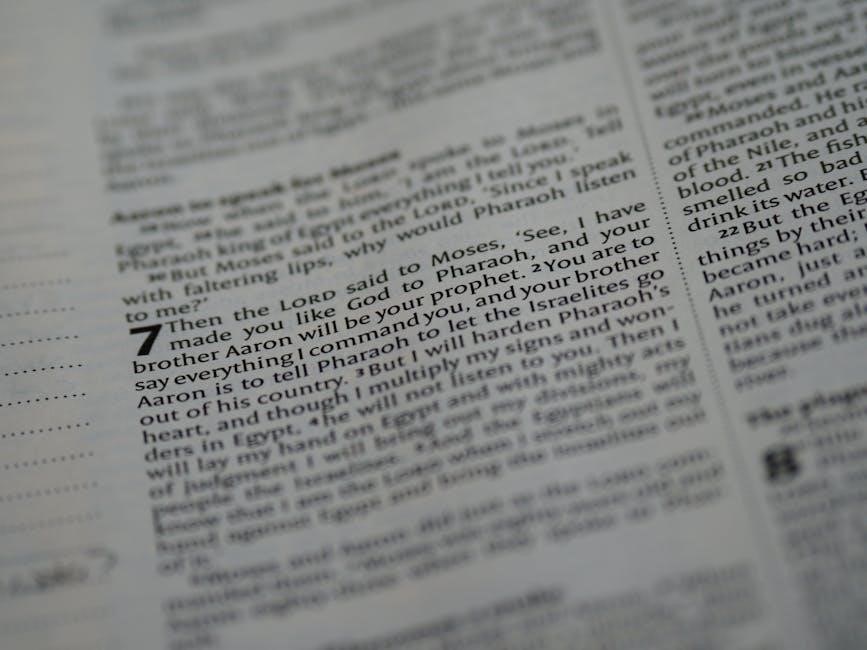
Joel, a Minor Prophet, is best known for his emphasis on “The Day of the Lord,” a central theme in his book. Active around 800 B.C., Joel addressed the southern kingdom of Judah, calling the people to repentance in the face of divine judgment. His prophecy is marked by vivid imagery, including a devastating locust invasion symbolizing God’s wrath. Joel urged the people to return to the Lord with fasting, weeping, and heartfelt prayer, promising that God would respond with mercy and restoration. His message extends beyond judgment, offering hope for renewal and the outpouring of the Holy Spirit. Joel’s prophecies are significant, as they highlight the seriousness of sin and the necessity of genuine repentance, while also pointing to the ultimate hope of divine redemption and spiritual renewal.
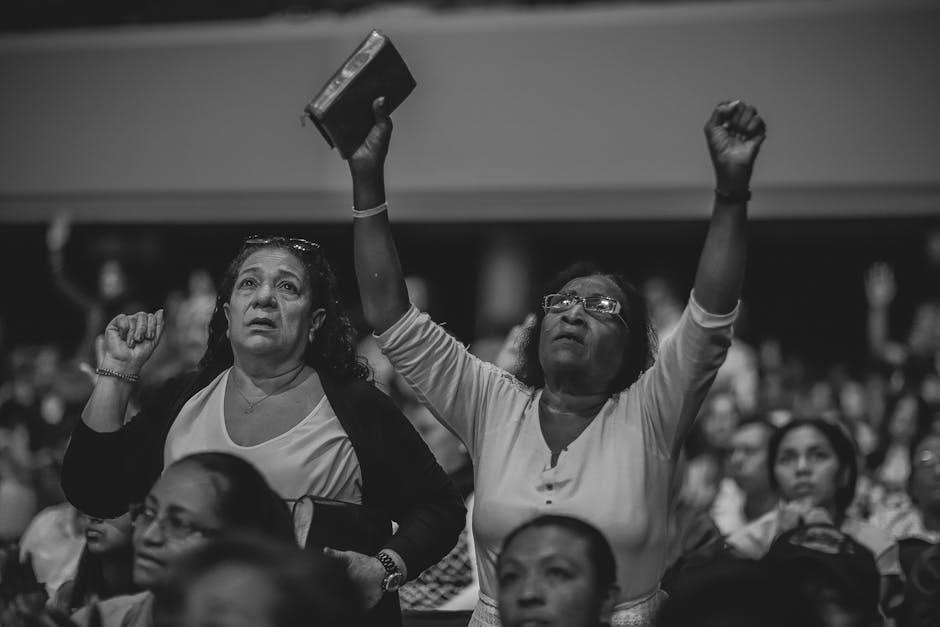
Amos: Justice and Righteousness
Amos, a Minor Prophet, preached in the 8th century B.C., primarily to the northern kingdom of Israel. His message emphasized justice and righteousness, calling the people to repentance for their widespread corruption and oppression of the poor. Amos, a shepherd by trade, was called by God to deliver a powerful message of moral accountability. His prophecies condemned social inequality, idolatry, and exploitation, urging the people to “let justice roll on like a river.” Amos’s teachings were not limited to Israel but also addressed the sins of neighboring nations. His book is structured in three parts: condemnation of sin, critique of Israel’s rebellion, and a call to repentance. Amos’s prophecies underscored the necessity of living out faith through ethical actions, making his message timeless and universally relevant. His emphasis on justice and righteousness remains a cornerstone of biblical ethics and societal reform.
Micah: The Messenger of Hope
Micah, a Minor Prophet, ministered during the 8th century B.C., alongside Isaiah, addressing both Judah and Israel. His prophecies emphasized justice, righteousness, and hope, calling the people to repentance. Micah condemned corruption, exploitation, and false prophecy, urging the nation to trust in God’s covenant promises. A key prophecy in Micah 5:2-5 foretells the Messiah’s birth in Bethlehem, a fulfillment realized in Jesus Christ. Micah’s message balances divine judgment with the hope of restoration, envisioning a future where God’s people live in peace and prosperity. His teachings stress the importance of ethical living, compassion, and faithfulness, making him a significant voice in biblical prophecy. Micah’s legacy endures as a call to integrity and trust in God’s redemptive plan, resonating across generations and cultures.
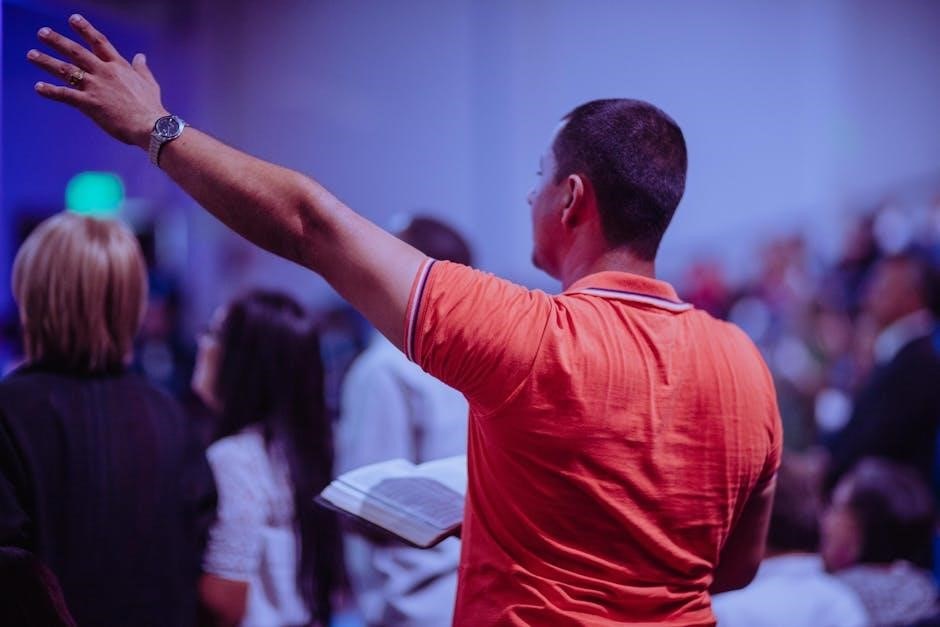
Prophets in the New Testament
The New Testament highlights prominent prophets like John the Baptist and Jesus Christ, who brought divine messages of redemption and salvation, fulfilling Old Testament prophecies and embodying God’s plan for humanity.
John the Baptist: The Final Old Testament Prophet
John the Baptist is recognized as the final prophet of the Old Testament, serving as a bridge to the New Testament. He was divinely appointed to prepare the way for Jesus Christ, emphasizing repentance and spiritual renewal. His ministry focused on baptizing individuals in water as a symbol of cleansing from sin, famously baptizing Jesus Himself. John’s role fulfilled ancient prophecies, such as those in Isaiah and Malachi, who foretold of a messenger preceding the Messiah. His teachings stressed the urgency of moral reform and the coming kingdom of God. Despite facing persecution, John remained steadfast, highlighting the importance of humility and obedience to God’s will. His legacy endures as a pivotal figure in both Christian and Jewish traditions, as well as Islam, underscoring his universal significance.
Jesus Christ: The Ultimate Prophet
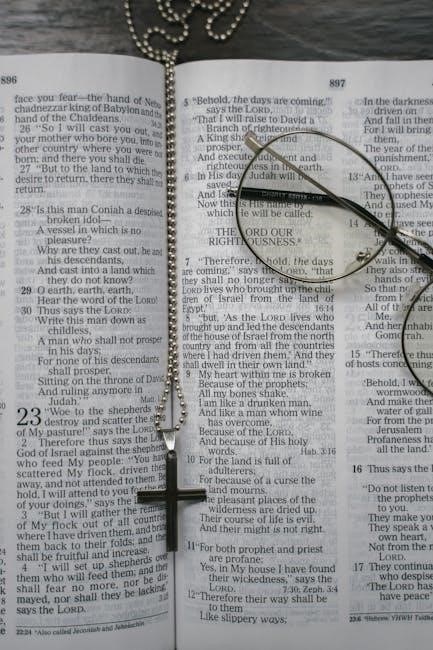
Jesus Christ is widely regarded as the ultimate prophet in Christian theology, fulfilling the prophecies of the Old Testament and embodying the full revelation of God. Unlike other prophets, Jesus was both the messenger and the message, divine in nature and uniquely qualified to reveal God’s heart. His teachings emphasized love, forgiveness, and the kingdom of God, often conveyed through parables and miracles that demonstrated His authority. Jesus’s prophetic role extended beyond foretelling the future; He was the fulfillment of prophecy itself, embodying the long-awaited Messiah. His resurrection and teachings laid the foundation for Christianity, making His prophetic ministry unparalleled in scope and impact. As the final and most authoritative prophet, Jesus’s message transcended time and culture, offering universal salvation and spiritual transformation.
